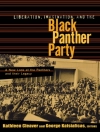In September 2022, at a grandiose ceremony in the Kremlin, President Putin announced the incorporation into the Russian Federation of four provinces in southern and eastern Ukraine—the most significant attempted land seizure in Europe since World War II. Although Russia was not in control of large parts of these provinces, its military occupied more than 40, 000 square miles, roughly the size of Denmark.
Occupation explains how Russia sought to subjugate these territories through a toxic mix of violence, political influence and economic coercion. Its security forces kidnapped, tortured and killed civilians and officials, seized businesses and properties from Ukrainian owners, erased physical evidence of Ukrainian culture, and subjected the population to a barrage of constant propaganda.
More than half of the pre-war population fled, to Europe, Russia or the rest of Ukraine, and most who remained were hostile to the occupiers. Yet Russia found local politicians to front its regime. A few people openly collaborated; most faced uncomfortable choices to survive under Russian rule.
In occupied Ukraine, Moscow attempted to create an ersatz ‘new Russia’, based on fantasy, ideology and violence. This regime was a microcosm of the contemporary Russian Federation, reflecting its deepening militarisation and authoritarianism.
Mengenai Pengarang
David Lewis is Professor of Global Politics at the University of Exeter, specialising in Russia, Central Asia and the Caucasus. His most recent book is Russia’s New Authoritarianism: Putin and the Politics of Order. In 2019–22, he was seconded to the UK Foreign, Commonwealth and Development Office.












